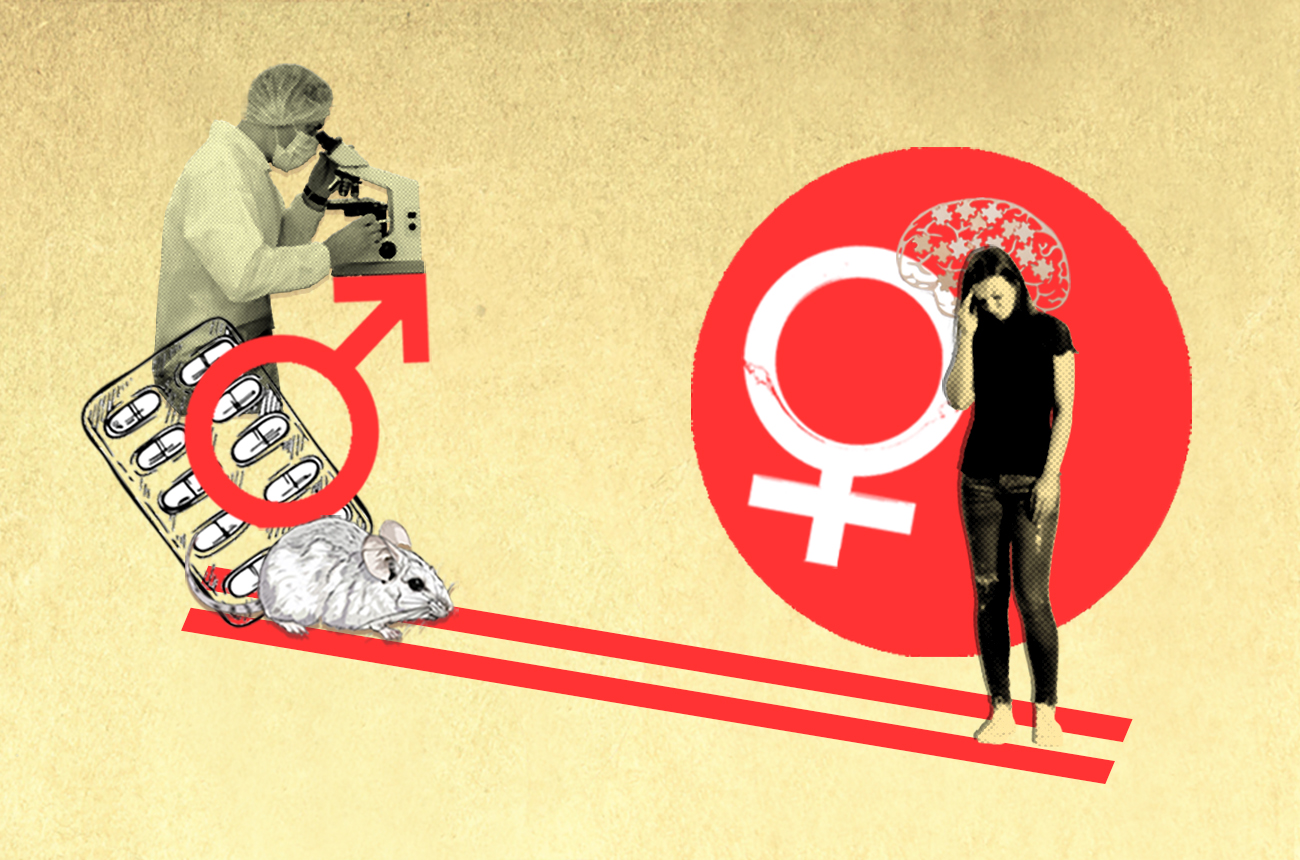Gender medicine is also good for men
Efforts to bring more gender diversity to medical research and drug development are focused on addressing gaps in women’s health. But understanding gender differences in medicine will also benefit men.
Males have been the default when it comes to the research and development of new drugs and vaccines. Many drugs taken today were only tested on male animals or men. For some 15 years, women of childbearing age were barred from participating in early-phase clinical trials in the United States. Similar restrictions were in place in other countries until the 1990s.
Even as policies have changed to encourage and even mandate gender diversity in clinical trials, women are still under-represented in many areas of biomedical research. We point out some of the reasons in this article: bias, safety concerns, costs and simply “the way we’ve always done things” all explain why women have been sidelined.

More
Drugmakers are finally making medicine for women
There’s no question that this has been bad news for women’s health. More women are mis-diagnosed or over-medicated because diagnostic tools and drugs weren’t developed with their bodies in mind. Many pregnant women stop taking their regular medication because they don’t know if it is safe for them or the fetus. Women more often report adverse side effects from medicine once it’s on the market.
There is now a movement to remedy this and integrate gender and sex differences into patient care, diagnoses, and drug development. This should help to ensure that drugs on the market are safe and effective for women.
But gender medicine won’t just benefit women. By ignoring sex (biology) and gender (identity) differences in medicine and drug development, we’ve also done a disservice to men. The focus on men in clinical trials has left gaping holes in our understanding of diseases that affect both women and men.
Take multiple sclerosis. Researchers have been trying for decades to understand what causes this debilitating disease, which affects some 2.9 million people globally and is on the rise. Women are at a three times greater risk of the disease than men. Could male hormones or men’s body fat hold the keys to the disease?
In a similar vein, Parkinson’s disease, which affects the nervous system, disproportionately affects men but again, researchers aren’t sure if this is due to genetics or environmental factors like exposure to pesticides.
There are also some disease areas where men are sidelined in research. Carole Clair, who heads the health and gender unit at the University Centre for General Medicine and Public Health (Unisanté) in Lausanne, pointed out that most mental health interventions are tailored to women because statistics show that women suffer more from depression, anxiety and other mental health conditions.
“Men also suffer from mental health problems, but it often goes under-recognised,” said Clair. “If we continue to do most research of anti-depressant drugs on women, we will never discover male specificities.”

More
Gender-specific Covid-19 responses: men show greater physiological changes
The importance of gender differences was made even more apparent during the Covid-19 pandemic. Mortality rates for Covid were higher for men than women. Women, however, make up the majority of people with Long Covid. Moreover, women reported more adverse side effects from Covid-19 vaccines. These differences could inform the way healthcare providers care for and treat patients.
There is definitely a need to correct male bias and bring more women into basic research and clinical trials. But we shouldn’t just see this as a way to improve women’s health but rather everyone’s health.
Edited by Virginie Mangin/gw

In compliance with the JTI standards
More: SWI swissinfo.ch certified by the Journalism Trust Initiative










You can find an overview of ongoing debates with our journalists here . Please join us!
If you want to start a conversation about a topic raised in this article or want to report factual errors, email us at english@swissinfo.ch.